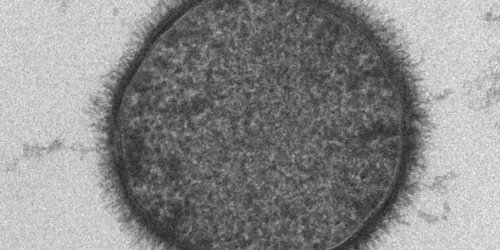Adaptive immunity
Discovery of a bacterial protein's unusual properties have given rise to a novel drug for the treatment of inflammatory diseases which affect hundreds of millions of people globally.
Approximately 125 million people around the world suffer from psoriasis, 5.5 million people in the UK are being treated for asthma, and rheumatoid arthritis affects up to 1 per cent of the population.
These and other inflammatory diseases are currently treated with non-specific drugs that are taken daily to control the symptoms rather than target the underlying drivers of disease.
Research led by Neil Williams, Professor of Immunology in Bristol’s School of Cellular and Molecular Medicine, led to the discovery that a highly stable, non-toxic protein produced by E. coli – known as EtxB - could influence immune responses in animals.
His studies showed that EtxB modulated the activation of B and T lymphocytes, which are the critical cells involved in adaptive immunity.
This research showed the potential of EtxB as a novel therapy for human disease and Professor Williams began to establish tools and techniques that helped apply the research to the treatment of diseases such as type 1 diabetes, colitis and asthma.
Professor Williams’ laboratory has subsequently become a centre for the study of immune modulating therapies.
In 2006, Trident Pharmaceutical Inc was formed around a number of patents filed as a direct result of Professor Williams’ research on EtxB.
The spin-out company received $20 million in investments and its aim was to bring EtxB through Phase II clinical trials before seeking a pharmaceutical partner. EtxB successfully completed Phase I trials in 2011 and is currently in Phase IIa trials in humans with inflammatory disease.
Unlike chronically administered non-specific drugs, a short course of EtxB can turn off the underlying processes driving inflammatory disease for long periods of time, which resets the balance between inflammation and normal physiology - a novel and exciting new paradigm for treatment.
Williams’ work on EtxB established him as a leader in developing studies to understand the mechanisms of action of diseases.
Industry began to seek his expertise and in 2004 he established the spin-out company KWS BioTest Ltd with Michael Day, Professor of Veterinary Pathology in Bristol’s School of Veterinary Science, in order to respond to respond to industry requests. KWS is now a leading partner for high quality drug discovery and efficacy in Europe.
In 2012, it was awarded the South West Biomedical iNet award for outstanding business achievement. Since 2004, the company has carried out experimental studies for more than 75 different companies, with most of its business coming from the UK, EU and US. KWS currently employs 29 people.
This spin-out company, formed on the back of Professor Williams’ research, provides critical support to small pharmaceutical companies, which typically lack the expertise and facilities to carry out pharmacology testing. While the service and data quality KWS provides to medium and large pharmaceutical partners is also a cost-effective and ethical approach to their drug discovery.
Related research groups
 Study Cellular and Molecular Medicine
Study Cellular and Molecular Medicine
Contribute to the clinical application of scientific knowledge.
